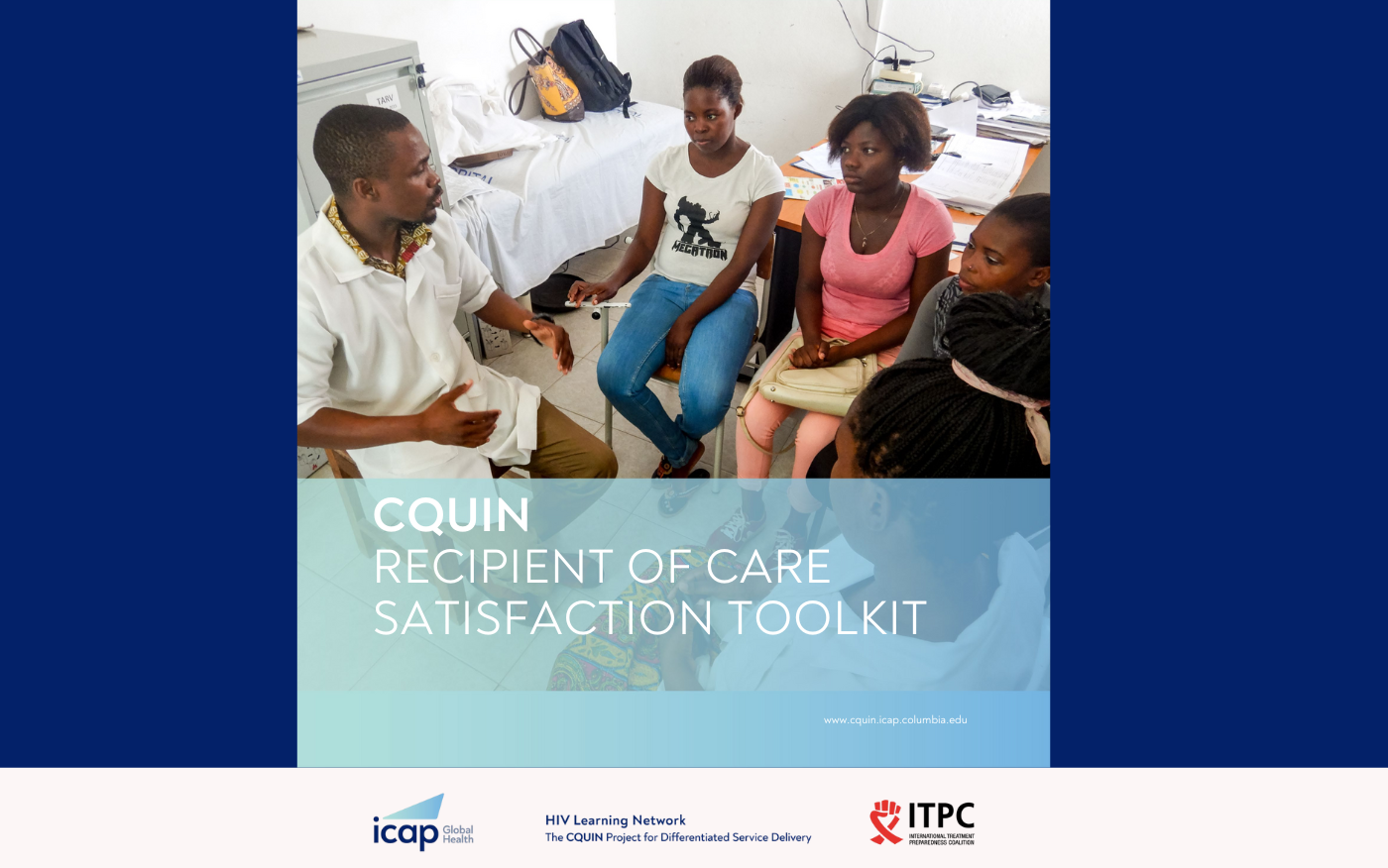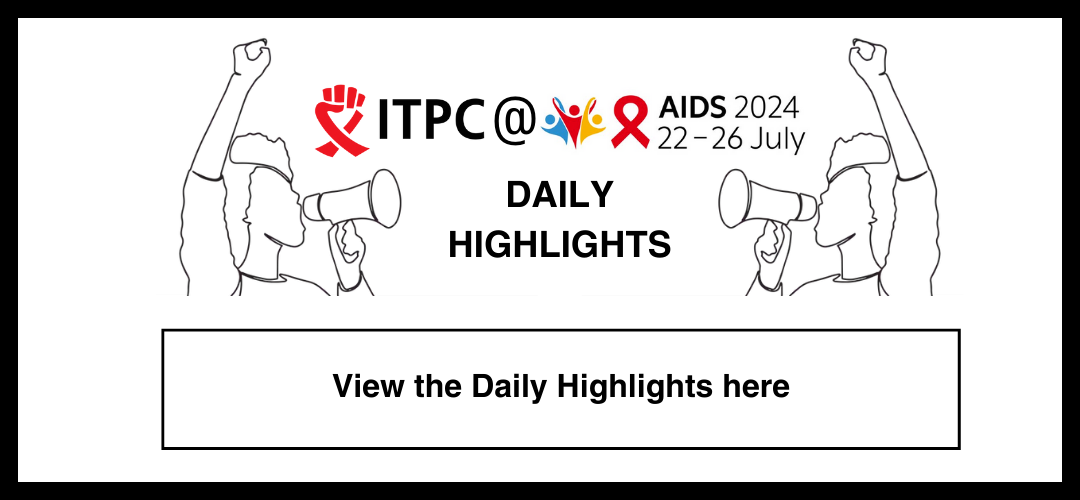In collaboration with ICAP CQUIN, we have co-created a toolkit to help countries in the CQUIN network assess recipient of care satisfaction with differentiated service delivery (DSD). “Several research studies show the link between recipient of care satisfaction and HIV treatment adherence, which is a critical pre-requisite to improving treatment outcomes,” said Gillian Dougherty, MPH, BSN, ICAP’s Quality Improvement advisor and co-lead of the CQUIN Quality Management Community of Practice. “Through our interactions with network member countries over time, countries identified gaps in their ability to define, measure, and improve the satisfaction of people receiving HIV services. Several meetings have also brought issues of provider treatment at facilities to the forefront. The toolkit is our response to the demands by network member countries,” she added.
The toolkit was co-created with input from three of CQUIN’s communities of practice – DSD Quality Management, Differentiated Monitoring & Evaluation, and the Community Advocacy Network, where the latter is managed by ITPC. It includes information about defining and measuring satisfaction with health services, the advantages and disadvantages of different approaches and tools, and a wealth of case studies and examples that countries can use to design contextually appropriate evaluations of recipient of care satisfaction. It also emphasizes the importance of using these data to continuously improve satisfaction scores.
Among others, the toolkit describes diverse approaches to assessing recipient of care satisfaction, including community-led monitoring (CLM) of health services.
“It is important for us that ministries of health understand CLM as a complementary approach to other monitoring systems in place to improve health services.It is a tool that may unearth data that will usually not arise from facility-led quality improvement initiatives because CLM data collectors come from affected communities themselves. In this way, CLM collects insights directly from recipients of care – data which helps to identify underlying issues at the individual and system level and contributes to the solutions required to fix them.” – Krista Lauer, ITPC Citizen Science Lead.
View the Toolkit on the ITPC Global website here.
Read more about the CLM approach here.

